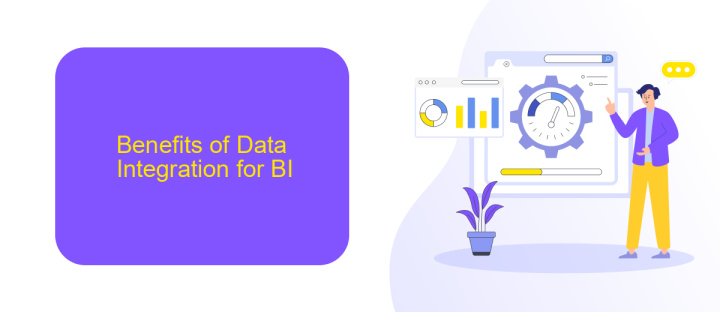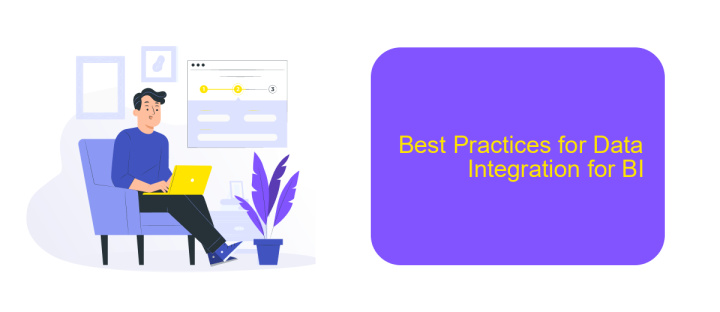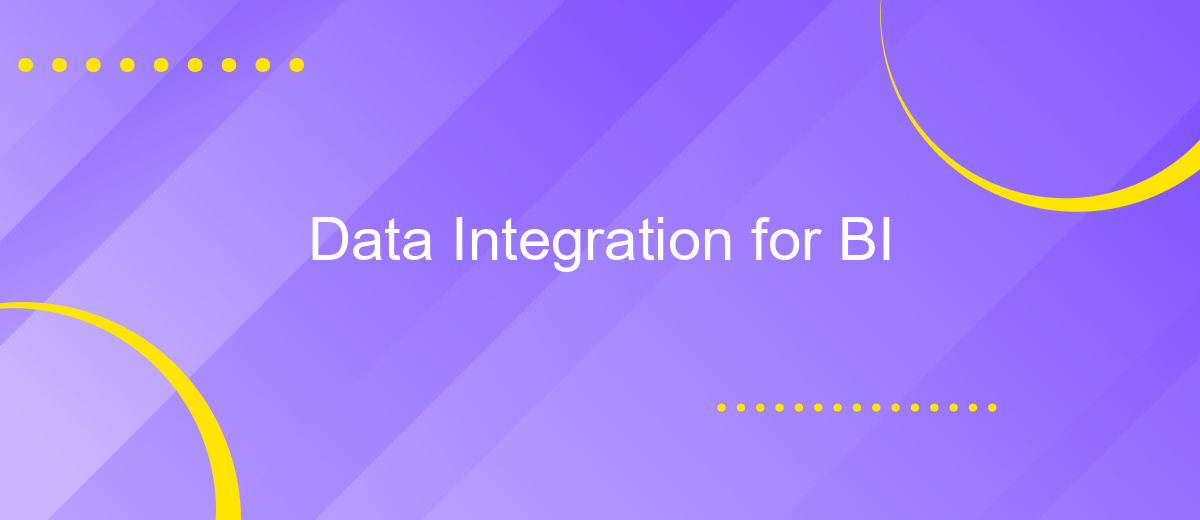Data Integration for BI
In today's data-driven world, businesses rely on seamless data integration to power their Business Intelligence (BI) systems. Effective data integration consolidates disparate data sources, enabling comprehensive analysis and informed decision-making. This article explores the critical role of data integration in BI, highlighting its benefits, challenges, and best practices to help organizations harness their data's full potential for strategic advantage.
Introduction to Data Integration for BI
Data integration is a critical process for Business Intelligence (BI) that involves combining data from various sources to provide a unified view. This enables organizations to make informed decisions based on comprehensive data analysis. Efficient data integration ensures that all relevant data is accessible, accurate, and up-to-date, which is fundamental for effective BI.
- Combining data from multiple sources
- Ensuring data accuracy and consistency
- Providing a unified view for analysis
- Facilitating informed decision-making
Modern tools like ApiX-Drive simplify the data integration process by automating the transfer and synchronization of data between various platforms. These tools help reduce the complexity and time required for integration, allowing businesses to focus on analyzing data rather than managing it. By leveraging such services, organizations can enhance their BI capabilities and gain valuable insights more efficiently.
Benefits of Data Integration for BI

Data integration for Business Intelligence (BI) offers numerous benefits that streamline decision-making processes and enhance overall organizational efficiency. By consolidating data from various sources into a unified view, businesses can gain a comprehensive understanding of their operations. This holistic perspective allows for more accurate and timely insights, facilitating better strategic planning and operational adjustments. Additionally, integrated data ensures consistency and reliability, reducing the risk of errors and discrepancies that can arise from handling multiple data sets separately.
Moreover, the integration process can be significantly simplified with tools like ApiX-Drive, which automate the connection of various data sources and applications. ApiX-Drive enables seamless data flow between systems, reducing the manual effort required for data management and allowing teams to focus on analysis rather than data preparation. This automation not only saves time but also enhances data accuracy, leading to more informed decision-making. Ultimately, data integration for BI empowers organizations to leverage their data assets more effectively, driving growth and competitive advantage.
Data Integration Challenges and Solutions

Data integration for Business Intelligence (BI) presents several challenges that can hinder the seamless flow of information. These challenges often stem from the complexity of integrating data from various sources, each with its unique format and structure.
- Data Silos: Isolated data sources can lead to inconsistencies and incomplete data sets.
- Data Quality: Ensuring the accuracy, completeness, and consistency of data can be difficult.
- Scalability: Integrating large volumes of data from multiple sources can be resource-intensive.
- Real-Time Integration: Achieving real-time data synchronization across systems can be challenging.
- Security: Protecting sensitive data during integration processes is critical.
To address these challenges, businesses can leverage tools like ApiX-Drive, which simplifies the integration process by providing a user-friendly interface for connecting diverse data sources. ApiX-Drive automates data synchronization, ensuring real-time updates and maintaining data quality. Additionally, it offers robust security features to protect sensitive information, making it a valuable solution for overcoming data integration hurdles in BI.
Best Practices for Data Integration for BI

Effective data integration is crucial for Business Intelligence (BI) to ensure accurate and timely insights. The first best practice is to define clear objectives and requirements for your data integration process. This involves understanding the data sources, the type of data, and the desired outcomes.
Another essential practice is to ensure data quality and consistency. Implement data validation rules and cleansing processes to maintain high data quality. This will help in avoiding errors and inconsistencies in BI reporting.
- Utilize automated tools like ApiX-Drive for seamless integration.
- Regularly monitor and update data integration workflows.
- Ensure data security and compliance with relevant regulations.
- Document integration processes for transparency and troubleshooting.
Finally, collaboration between IT and business teams is vital. Both teams should work together to align data integration efforts with business goals. This collaboration ensures that the data integration process supports the strategic objectives of the organization.


Conclusion: The Value of Data Integration for BI
Data integration for Business Intelligence (BI) is a critical component that enhances decision-making processes by consolidating disparate data sources into a unified view. This integration allows businesses to gain comprehensive insights, streamline operations, and make informed decisions based on accurate and timely data. By eliminating data silos, organizations can achieve higher data quality, consistency, and accessibility, which are crucial for effective BI strategies.
Implementing data integration can be complex, but tools like ApiX-Drive simplify the process by offering seamless integrations between various platforms and applications. ApiX-Drive enables businesses to automate data flows without extensive coding, ensuring that data from multiple sources is harmonized and readily available for analysis. This not only saves time and resources but also empowers businesses to focus on leveraging data insights to drive growth and innovation. In conclusion, investing in robust data integration solutions is essential for maximizing the value of BI initiatives and staying competitive in today’s data-driven landscape.
FAQ
What is data integration in the context of Business Intelligence (BI)?
Why is data integration important for BI?
What are the common challenges in data integration for BI?
How can automated tools help with data integration for BI?
What is ApiX-Drive, and how does it assist with data integration for BI?
Apix-Drive is a simple and efficient system connector that will help you automate routine tasks and optimize business processes. You can save time and money, direct these resources to more important purposes. Test ApiX-Drive and make sure that this tool will relieve your employees and after 5 minutes of settings your business will start working faster.

